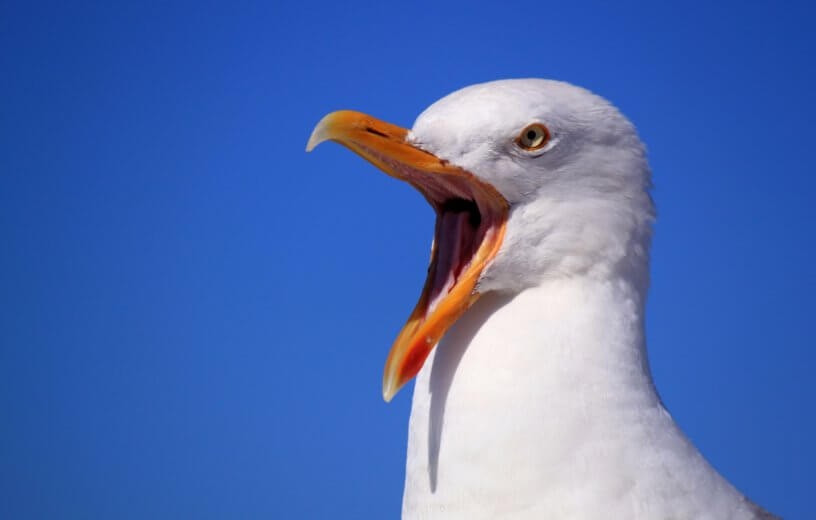EXETER, England — Most people don’t appreciate being stared at, especially by strangers. Well, according to a new study conducted at the University of Exeter, seagulls feel the same way about prying eyes. If you’re at the beach and worry a seagull may be after your lunch, researchers say that the pesky birds are less likely to steal food while being watched.
In their study, it took herring seagulls an average of 21 seconds longer to approach a bag of chips placed on the ground while being stared at, compared to when a human looked away. The experiment took place in a coastal town in Cornwall, England.
The research team actually tried this experiment with 74 gulls, but most ended up flying away or not showing any interest in the food. In all, 27 gulls took the bait, and 19 completed both the “looking away” and “looking at” tests.
“Gulls are often seen as aggressive and willing to take food from humans, so it was interesting to find that most wouldn’t even come near during our tests,” explains lead author Madeleine Goumas in a release. “Of those that did approach, most took longer when they were being watched. Some wouldn’t even touch the food at all, although others didn’t seem to notice that a human was staring at them.
Goumas and her team theorize that the differences in how various seagulls approach humans and nearby food may just come down to individual personalities, or prior experiences with being fed by humans.
“Gulls learn really quickly, so if they manage to get food from humans once, they might look for more,” senior author Dr. Neeltje Boogert comments.
In coastal areas like Cornwall, gulls are generally considered a nuisance due to their habit of sneaking away with beachgoers food and snacks.
“We therefore advise people to look around themselves and watch out for gulls approaching, as they often appear to take food from behind, catching people by surprise,” Dr. Boogert continues. “It seems that just watching the gulls will reduce the chance of them snatching your food.”
Moving forward, the study’s authors hope to investigate how the ingestion of human food affects seagulls, and their offspring, over long periods of time.
The study is published in the scientific journal Biology Letters.
